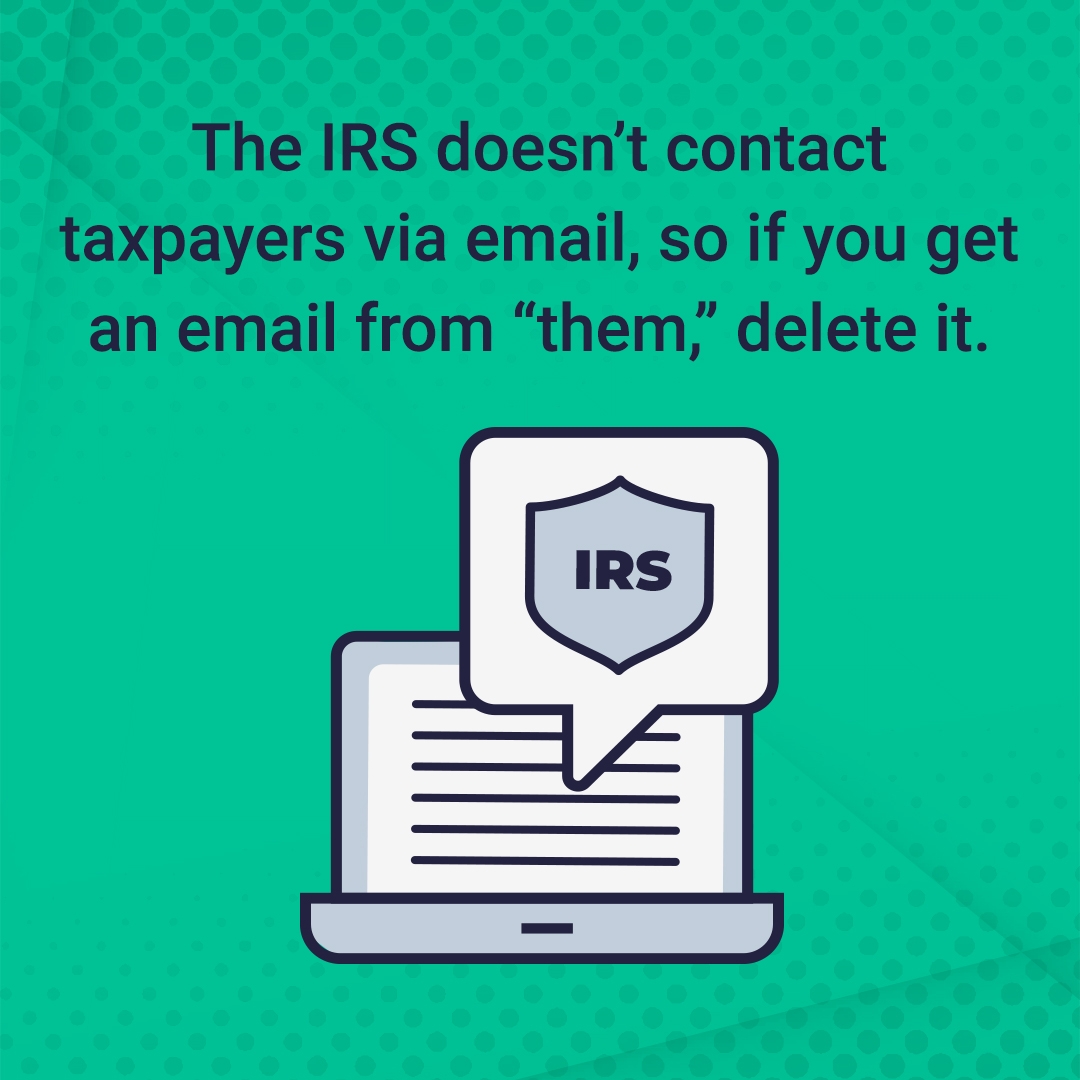Tax Scams in the Days of a Pandemic

Between COVID-19, concerns for friends and family, and financial upheavals, taxes may be the least of your worries right now. Especially since the IRS has officially moved the 2020 income tax deadline to July 15th. While the extended deadline may bring some emotional and financial relief, it also gives scammers three extra months to try to steal your income tax refund, personal information, and more. Here’s what you need to know about tax fraud schemes and how to protect against them in 2020.
First and foremost, file as soon as you can, especially if you have a refund coming. The sooner you file, the less chance a tax scammer has to misuse your identity. The IRS recommends filing electronically and says it is still sending refunds roughly 21 days after submittals. As of this writing, your 2019 income could also affect whether you receive a check from the proposed coronavirus stimulus package.
The IRS is posting the latest tax scams and posting warnings on its alert page. Here are some of the most prevalent scams this year:
- Fraudulent returns: Scammers use stolen personal information to file false returns in a victim’s name, or they or hack into tax preparer’s systems to divert refund payments. You can help foil this one by filing early and by watching for any irregularities such as multiple tax returns filed under your SSN.
- Fake IRS phone calls: Scammers call pretending to be the IRS and demanding immediate tax payment, often via gift card or wire transfer. This is an old scam, but criminals may play on people’s current anxiety or confusion about the tax extension to try to fool more people. Know that the IRS will never call you directly, and they certainly won’t ask for wire transfers or gift cards.
- Threats against your Social Security number (SSN): Robocallers claiming to be the IRS say that they will suspend or cancel your SSN if a supposed overdue tax bill isn’t paid. Never return these calls or give out personal information on the phone. Again, the IRS will never call you directly, and your SSN can’t be cancelled.
- “Ghost” tax preparers: The IRS warns against dishonest “ghost” tax return preparers who may charge fees but never actually file clients’ taxes or who falsify information in the return to qualify clients for huge refunds, then either charge high fees based on a percentage of the refund or redirect the refunds to their own bank accounts. Check references before choosing a tax preparer.
- Tax Advocacy Panel scams: Some taxpayers are receiving emails or calls claiming to be from the Taxpayer Advocacy Panel (TAP) about a tax refund, then asking the taxpayer to provide personal and financial information. TAP is a volunteer board that advises the IRS on systemic issues affecting taxpayers. TAP never contacts taxpayers for information. Don’t answer these emails, and if you receive a call, hang up and report it to the IRS by emailing phishing@irs.gov.
- Fake IRS forms: Forbes magazine recently reported on an email scam requesting recipients to file a W-8BEN form for a tax exemption. The document mentioned in the email is a legitimate IRS form requesting tax exemptions for foreign individuals. But the scammers send a modified version that asks for all kinds of personal information, including mother’s maiden name, banking information, SSN, and passport number. Again, the IRS doesn’t contact taxpayers via email, so if you get an email purporting to be from them, delete it.
These are this year’s top hits on the tax scam playlist. But, thanks to COVID-19, the 2020 tax season still has months to go, and scammers may come up with even more ways to profit from your taxes. These are anxious times, so just remember that the IRS doesn’t call or email to threaten taxpayers. You can protect yourself if you stay informed, stay calm…and, of course, wash your hands.
About IDX
We're your proven partner in digital privacy protection with our evolving suite of privacy and identity products.